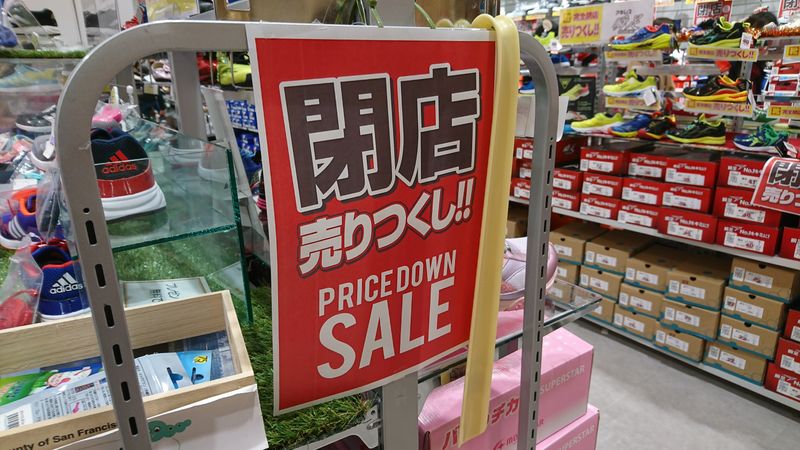Jan 8, 2018
3 Common, Confusing Uses of English You Will Encounter in Japan
As a consumer, you are here ready to spend your money. Usually the process is that you will see something you like, pick it up to check it out, see the number that should represent its price in yen, and you pull your wallet out. Such a simple transaction can often bypass language gaps, so buying things usually is not too difficult even if you don’t speak Japanese.
However, there are some English words that might create more confusion than being helpful. We will discuss 3 below and my own silly stories on how they confused me.
1. “Free” フリー
"Free" has two meanings: one is that you don’t need to pay a dime, and the other is closer to the concept of having no restrictions. In Japan, they use the word “free” for both meanings, but they can be rather confusing. For example, the first time I went into a karaoke shop created quite a memorable confusion for both me and the clerk.
On a Sunday afternoon during my first year in Japan, I decided to venture into a karaoke-joint by myself to practice my Japanese in front of a mic and a TV. Having been to a party that someone else organized, I thought I knew enough to at least try going alone. I walked into the shop and here’s the rest of the story:
Clerk: “Welcome to our karaoke shop. How many is it for today?”
Me: “For just 1, please.”
Clerk: “Okay, how long would you like to stay here?”
Me: *reads the menu and spots the phrase ‘FREE TIME’* Oh, it’s free time?
Clerk: “Free time, okay. For one person… so that will be 880 yen.”
Me: “Wait, but… isn’t it free?”
Clerk: “Uhh… yea, it’s free time. 880yen per person.”
Me: “Uhh… what happened to ‘free’?”
Clerk: “Uhh….”
Me: “Uhh…”
------------------
So, the “free time” actually means “all-you-can-sing” or that “you can sing without limits”, just like if you see “free time” at a parking spot, it means you can stay there for as long as you want (until the set time), The more ridiculous moments were when I was at a restaurant in Japan with “free drinks” that cost 400 yen per person. If you see “free ___”, think of which meaning it might hold and check if there’s a number beside it that’s greater than 0 yen!
2. “Service” サービス
"Service" in English refers to what someone else does for you, but it has a very different meaning in Japan. I went into a restaurant for a nice dinner, and at the end of the meal, the waitress came by with a small ice-cream and said “this is ‘service’ “. I looked at her and replied:
Me: “Well, thank you for your nice service, but I didn’t order ice-cream.”
Waitress: “Ah, this is ‘service’.”
Me: “Um… I see your service, but I didn’t order this.”
Waitress: “Yes, ice-cream is ‘service’ if you ordered a main dish.”
Me: “Okay….? So how much is this?”
Waitress: “Oh, it’s free. It’s service.”
Me: “??????”
------------------
So in Japan, rather that which others are doing for your convenience, ‘service’ often means that something is complimentary, so if you see something is “service”, that’s something you don’t need to pay for. For some reason, you will see “service dessert” or “service drink” more often than “free dessert” or “free drink”, likely for the confusing reason that is number 1.
3. “Price down”
This one might be more obvious to most and it became obvious to me post the silly story that follows. It often means “on sale” or “a new lowered price”, but to hear it used by a clerk saying it aloud in English the first time got me quite confused when I was looking at a pair of runners. The sales clerk came to sell me on the shoes and told me that they don’t have a lot of stock left.
Me: “Do you have this in size 9?”
Clerk: “Yes, this is the last pair.”
Me: “Uhh, okay. Umm, 4800 yen…”
Clerk: “Yes. Price down, price down! (said in English knowing that I’m not fluent in
Japanese).”
Me: *literally looks down to stare at the price tag*
---------------------------------------
A moment later I immediately understood she meant that it is now on sale, but I can’t believe it got me. Nowadays I have started to notice the phrase “price down”, but my first time reacting to it is a story I will continue to share for ages.
For those visiting Japan, I hope these will help you navigate the coutry as a consumer. Do you have a funny story to share? Leave it in the comments below!
----------------------------------------------------------
Enjoyed this post? Follow for more like this!



0 Comments